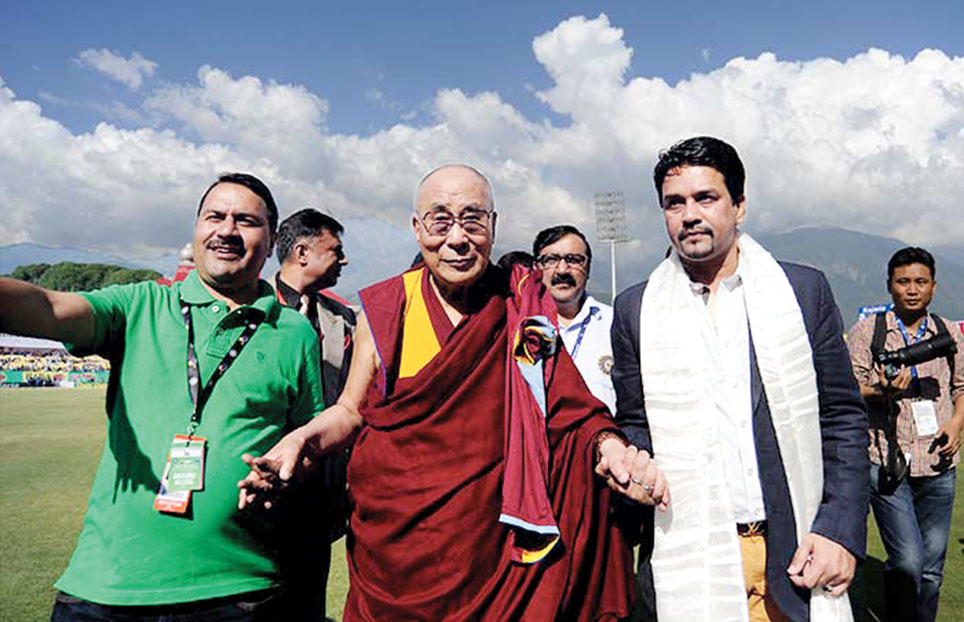Everyone says politicians should not intrude into sports bodies. But they are needed there.
By one of those strange ironies of history, or its paradoxes, most English educated people know what Catch-22 means, at least approximately. But very few, I am ready to bet, actually know that it comes from a book of that name. The author, Joseph Heller, is mostly forgotten now but not the title which is simply a new name for an old paradox.

The paradox arises, for example, when a mad person is judged to be sane if he applies for treatment on such a ground: “If he has applied for treatment, he can’t be mad.” It is a version of the Cretan Liar Paradox where a man says, “I am lying.” Do you believe him?
Likewise, in the book Catch-22, there is a situation when the hero refuses to go on a bombing mission. The chaplain of the squadron asks him, “What if all pilots thought the way you do?” The hero replies, “I would be mad to think any other way then, wouldn’t I?”
Hence my view that when everyone is agreed that politicians should not intrude into sports bodies, it is time to ask why not? Decision by general consensus may be democratic. But is it always sensible? For instance, if the consensus is that women should be oppressed in thousands of small ways, is the consensus correct? Or, if the consensus is that everything should be subsidised by the government, is it the right thing to do?
I can multiply these examples but the point is clear: consensus is a bad guide to the rightness of a decision.
Politicians and Sports
If you Google the above three words, you will be astonished at how everyone, especially politicians, are in total and complete agreement that politicians are bad for sports organisations. The reasons range from their feathering their already large nests in South Asia to their getting some cheap publicity through piggybacking on sports events and stars in the rest of the world.
But this is a populist view. It may be true, but it is an incomplete view because politicians do bring some value to the table. This is especially so in South Asia where status begets status because of the essentially feudal nature of our societies. In countries where you are more likely to receive unequal treatment, you need clout to get just treatment, and it is a sad truth of life there that the politicians provide it. The fault, as Shakespeare said, lies in us, not our stars.
You may well ask: don’t successful sportsmen like Sunil Gavaskar or Sachin Tendulkar or Leander Paes or P Gopichand or Jwala Gutta or any of the scores of the champion sportspersons have clout? The dismaying answer is a big No. To see why, you have to understand the South Asian system whose innate feudalism has been overlaid with a thick coating of bureaucracy.
Bureaucrats in South Asia are trained to obey, not cooperate. Not just that: they obey only those who can harm them, namely, someone senior to them or more powerful than them. This makes them ignore or neglect everyone else. This is just how it is, and will be, until someone teaches them otherwise.
Sorry, no
Politicians fulfil both criteria of threat and reward when it comes to bureaucrats. This means that if the sports body needs some permission or the other, it had better get a politician to speak to the bureaucrat who is in charge. That’s how it works in our part of the world and, until things change, everyone needs a politician to lend a helping hand.
And why do we need so many permissions? The answer lies in our governance code, its DNA or its DOS. The British, when they were devising it for us in the last quarter of the 19th century, came under the highly judgemental influence of the Victorian clergy. Without getting into the details, it is enough to say here that the new system required specific permissions for almost everything that was not personal because the Victorian priests were convinced of our venality.
This, as it happens, was the exact opposite of the governance code in England. There you can do anything as long as it is not specifically prohibited by law. In South Asia, you can’t do anything unless it is specifically allowed by the law. This is what gives the bureaucracy its power. You need to ask for permissions at every step and unless bribed or ordered, the bureaucrats are bound to say ‘No’ because that is the surest bet to safety.
It is a ridiculous system but what to do except get a politician on board to smoothen life’s myriad travails in our part of the world?





